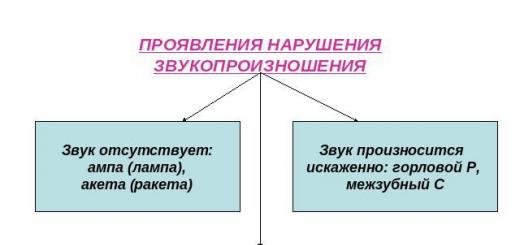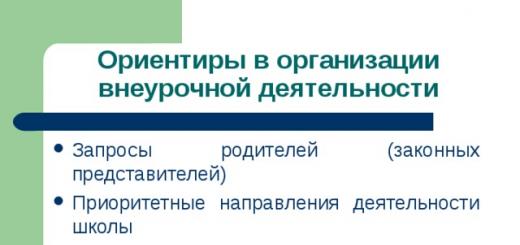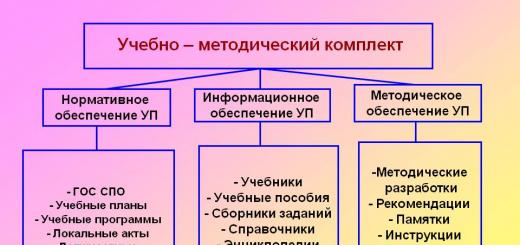When learning English, the biggest challenge for many people is grammar. It is boring, incomprehensible, and sometimes it seems that it is not possible to understand all the variety of tenses, articles and verbs. In fact, grammar helps to understand the logic of relationships between language units. In order to master it, first of all, you need to learn not to speak, but to think in English. Build sentences based on the peculiarities of English speech, rather than trying to translate Russian phrases into another language.
There are many approaches and techniques on how to learn English grammar. We will try to talk about all aspects of learning that should be paid attention to in order to achieve success in mastering a foreign language.
Where to begin?
Find a good textbook
First of all, you need to acquire high-quality teaching aids. It is best if this is material published and compiled by an English-language publishing house. Unlike their Russian-language counterparts, they are quite simple and do not contain elaborate explanations. Pay attention to such manuals as "Essential Grammar in Use" or "Grammarway". These publications allow you to work both independently and with a teacher. Focus on your level of language knowledge and follow the principle “from simple to complex.” As a rule, the content is structured in such a way that each subsequent material refers to the previous one, so even if the topic seems complicated and uninteresting to you, you don’t need to slack yourself and skip it. For those who are already familiar with the English language, the textbooks “Grammar in Use Intermediate” by Raymond Murphy, “Round Up” by Jenny Dooley are suitable.
Place accents
When starting to learn a language, many people ask a logical question: what to do first. Try taking a few tests to identify gaps in your knowledge. For example, Study Guide in any of the textbooks in the Grammar in Use series. You will learn which topics you should pay attention to first, with references to specific units. To test your knowledge and track your progress, it is useful to take tests or quizzes on various sites. This will allow you to identify shortcomings in mastering the material and work on individual points.
Read, read and read again
Don't limit yourself to textbooks, try to read as many different texts in English as possible. By using your visual memory, you will remember the construction of phrases, and by reading aloud you will train your pronunciation. While learning English, everyone has encountered the problem that native speakers speak very quickly, merging words so that it seems completely impossible to understand them. When reading aloud, you should not think about the construction of what you are about to say. Simply reproduce the finished text, working exclusively on the speed and quality of speech.
Reading aloud allows you to use 3 speech skills at once. You see the text, you reproduce it, you hear it. This means you learn information comprehensively, developing pronunciation and expanding your vocabulary.
When reading literature, we often remember phrases or interesting expressions we liked, which we later use in everyday speech. This works great when learning a language too! It is possible that reading books by the same author, after a while you will begin to speak in his manner and style.
New technologies
Video
Today you can find many videos online about how to easily learn English grammar. These could be special training programs, professional lessons or videos from bloggers. One of the main advantages of videos is a simple and accessible explanation from native speakers. You can review the recording several times, returning to the most difficult moments and understanding the nuances. In addition, thanks to modern technologies, you can study English at any time convenient for you, viewing lessons on your phone, tablet or laptop.
Mobile applications
Today, a huge number of mobile applications have been developed that allow you to quickly master English grammar. With their help, it is convenient to study new material or repeat what you have covered while traveling on public transport, traveling, or just while away the time in line. Many of them are completely free and do not require Internet access.
5 Useful Apps for Learning English Grammar
Duolingo- a simple application that allows you to train your writing and speaking skills, reading and listening. The entire course is designed from simple to complex.
Lingualeo- is a system that allows you to identify your knowledge gaps and create a suitable program. Here you can hone your grammar, learn new words,
Words- the application for Apple products contains more than 8 thousand words and is available to work without a network connection. Its main advantage is the ability to adapt to the user, offering tasks to practice those moments in which the largest number of errors previously occurred.
English Grammar in Use Activities- an application developed specifically by Cambridge University Press, aimed exclusively at learning grammar.
Voxy- an interesting application that allows you to study the material you need here and now. Native speakers will help you prepare for an interview and tell you the right phrases when going to the store or traveling around the country.
Social media
No matter what good textbook you choose, learning a language without direct communication with a native speaker is impossible. To do this, you can use various groups on social networks, special sites for finding interlocutors, such as SharedTalk, polyglotclub or italki, or simply find sociable colleagues who speak English. By talking on Skype you will improve your speaking skills and increase your vocabulary, and by chatting you will also improve your spelling and grammar. It's also a great way to make new friends and help others learn your native language.
Don't let yourself get bored
To ensure that language learning does not turn into a routine, try to look for new, unusual techniques and teaching methods.
Music
When listening to songs by English-speaking performers, pay attention to the lyrics. This will allow you not only to better understand the meaning of the composition, but also to improve your knowledge. Write down interesting phrases, grammatical structures and individual words with articles. By periodically re-reading your notes and listening to your favorite tunes, over time this information will be stored in your memory and expand your vocabulary.

Books
We have already mentioned the benefits of reading various literature in the target language. But writing texts will be no less useful. In order to learn English grammar, find an interesting book and start rewriting it. This will help to use not only the visual, but the mechanical component of memory. That is why when learning a language you should not limit yourself to tests. You will remember not only the grammatical structures themselves, but also be able to use them in writing.
Tongue Twisters
Remember, back in school, the teacher told us funny rhymes and tongue twisters to remember words and rules? Rhyming phrases are easy to remember and remain in memory for a long time. With their help you can learn irregular verbs, rules for using articles and much more.
Games
Video games are so addictive and immersive in the virtual world that you will be constantly motivated to learn new words in order to move on to new and new game levels. Of the variety of video games, everyone will find something that will be most interesting to them: hidden object games, RPGs where the hero needs to complete certain tasks, or MMO games like World of Warcraft, Lineage II, Crowfall and others, which are role-playing games with many participants from every corner of the planet who are forced to constantly communicate and develop strategies to achieve new levels.

We looked at the main ways to speed up the process of learning English, making it interesting and exciting. You can independently come up with a technique that will make it easy for you to learn new words, remember rules and grammatical structures. It doesn’t matter which method you use, the main thing is the result!
Many people learning English are frightened by even the very phrase “English grammar”; they consider it an impregnable fortress that they cannot conquer. In this article we will tell you how to learn English grammar in order to speak correctly. Use our tips and you will see: grammar is not as scary as it is made out to be!
There is an opinion on the Internet that there is no need to learn grammar. Allegedly, you and I mastered the Russian language even before learning the rules at school, which means the same will happen with English. However, the principle of information perception in adults is somewhat different from that of infants. Firstly, you and I are not immersed in the language environment, but can only imitate it for a few hours a week at best. Secondly, logic is no less stubborn than facts. Psychologists say: if a child takes everything on faith, without understanding why one word comes after another, and not vice versa, then an adult needs to justify everything from a logical point of view. That is, in order for us to be able to use a phrase in our speech, it is not enough to simply memorize it; it will be much more effective to understand it: why it is constructed this way and not otherwise. This logical explanation is precisely what grammar provides us with.
Our student Ilya Usanov, during his studies, realized how important grammar is for effective negotiations. .
6 Fundamental Principles for Learning English Grammar
Before we begin with practical advice, we will present the most important principles for studying grammar that we have formulated over the years of operating our school.
1. The bicycle has already been invented
The principle from simple to complex works in any field. This is exactly what you should follow when studying English grammar. The optimal sequence for studying it has long been deduced and presented in grammar textbooks, for example, in the Grammarway textbook.
2. Understanding, not cramming
There is no need to memorize the rules in the form in which they are presented in the textbook, the main thing is to understand and remember how to use this or that construction.
3. Theory without practice is useless
Our main advice is practice, preferably daily. Practice your acquired knowledge to the maximum in classes with an English teacher, do exercises from the textbook and on Internet resources, try to use a variety of grammatical structures in oral speech more often. Bring the skill of using them to automaticity.
4. The salvation of students is the work of the students themselves
It doesn’t matter whether you learn English with a personal teacher, in courses or on your own, in any case, spend time on self-study. That is, in addition to lessons, study the language every day for at least 20-30 minutes, this will allow you to quickly and easily master English in general and grammar in particular.
5. Simplicity is not a panacea
There is an opinion that Americans mainly use the three tenses of the Simple group, making life easier for themselves and those around them. Therefore, some students do not consider it necessary to study and use other tenses. This is the wrong approach to learning English. When communicating with a foreigner, you may be able to get your point across using only the simplest grammar. However, native speakers are unlikely to try to use only the tenses you are familiar with in conversation. You run the risk of not understanding what you are being told. Why we need 12 tenses of the English language and how to learn to use them correctly, you will learn from our video course “”.
6. The path to success lies through mistakes.
Get rid of psychological pressures: some people are so afraid of mistakes that they try to make do with elementary sentences, avoid complex constructions, etc. This is a fundamentally wrong approach: only in the process of communication can you understand what you have learned well and what you need to work on. Feel free to apply the acquired knowledge in practice: the path to the goal lies through mistakes.
Practical steps to help you learn English grammar
Now let's look at what specific tasks you need to complete in order to successfully master English grammar.
1. Choose a reliable textbook
Use quality grammar guides, such as Essential Grammar in Use or Grammarway. You can work with them either independently or with a teacher. The textbooks contain clear explanations and exercises for practice. To choose the most suitable manual, read the features of each of them in the article “”.
2. Determine which topics should be emphasized
If you are not learning English “from scratch”, you probably have a question: what to grab first? We recommend using the Study Guide section in any of the textbooks in the Grammar in Use series. This chapter is a grammar test. Go through it and check your answers at the end of the textbook. Note to yourself which questions caused difficulties: textbook units related to a specific grammar topic will be indicated next to them. This way you will get a complete list of topics to study. Take it and study the indicated constructions using the selected grammar textbook.
3. Take grammar tests
It is not enough to practice constructions solely using exercises from the manual. To learn English grammar faster, take online tests on different websites. A wide variety of activities can be found at esl.fis.edu and grammar-monster.
4. Read articles and books
Read texts in English, and do it not only silently, but also out loud. This is a good way to see the practical use of English grammar in real life. In addition, when reading, visual memory works (and when reading aloud, also auditory memory), and you will remember correctly constructed phrases. In the article “” you will find 8 ideas on how to remember useful constructions. And to choose a text that suits your level, check out our article “”.
5. Watch special training videos
8. Learn grammar from videos and songs
Auditory and visual memory are your main assistants in learning. Listening to an English song or watching a video in English? Pay attention to how native speakers use grammatical structures. Write down some phrases with articles and prepositions, and re-read them periodically. Gradually, the correct use of this or that construction will be stored in your memory. In the article “” you will find 9 sites where you can learn grammar and new words with the lyrics of your favorite compositions.
9. Identify common mistakes
Your English teacher will identify your common mistakes and help you eliminate them. In addition, you can independently study the topics in which mistakes are most often made and get rid of inaccuracies. To do this, read the life hack article “”. And also use the tips presented in the article by our teacher “”.
Learning English is always painstaking work, requiring a sincere desire to master the necessary knowledge. Without motivation, learning new information is impossible even with the best teachers and textbooks. Have you definitely decided that you want to know English? Congratulations, everything is easier with the right attitude.
What for?
Think about why you need English: for work, study, passing an exam, traveling abroad, reading books in the original, translating texts, communicating with foreigners, self-improvement... The more reasons, the greater the likelihood of success. The global goal (to learn English) must be supplemented by a number of intermediate tasks. For example, by Monday I will understand English word order and learn how to construct different types of sentences. Always try to keep the promises you make to yourself, because even a small success gives rise to enthusiasm and a great craving for a new language in your soul.
Where to begin?
Of course, the foundation of any language is grammar. Without grammatical rules, even the most extensive vocabulary in a foreign language becomes useless. Without basic knowledge of the structure of a language, no one could speak, read, or translate, since grammar focuses its attention on the patterns of constructing correct speech segments that carry a certain meaning. It is important that, once you understand English grammar, you will be able to freely construct sentences, intuitively guess the appropriate tense form, etc. According to traditional methods, at the beginning of learning the rules are memorized, a skill is gradually developed, which means that knowledge is applied in practice automatically, without thinking. The more you study, the more effective and faster the educational process goes.
How to choose a grammar textbook?
Studying grammar always involves working more with written exercises than speaking. This is why it is so important to choose the right study guide. Before purchasing a publication, make sure that it clearly outlines the rules, examples, and provides a variety of exercises to reinforce the material. For people completely unfamiliar with English, it is better to choose a textbook with rules in Russian. Ideally, at the end of the book there will be “keys” with answers; colorful illustrations, diagrams and tables are also welcome. The choice of textbook is always individual - the publication must meet your requirements and be interesting for you.
Many modern American, British and domestic textbooks are designed specifically for beginners, and each of them has its own advantages. All of them include a fairly wide range of topics or, conversely, have a narrow specialization for specific purposes. The following publications are the most popular these days:
- Headway
- Round Up
- Face2Face
- Streamline
- Cutting Edge
Of the Russian authors, it is worth noting such as Galitsinsky, Bonk, Vereshchagina. One of the most popular among those who begin to study English grammar is Essential Grammar in Use by Raymond Murphy. This is one of the best publications not only for beginners, but also for everyone who wants to have a good understanding of the basic rules of the language. However, this standard tutorial is written entirely in English and is not entirely suitable for the very first lessons.
Selecting tasks
Priorities in choosing tasks should be set depending on what goals you set for yourself (fluent, grammatically correct oral speech or error-free written grammar). If speaking is more important to you, practice your communication skills in English as much as possible. If correct writing is required, focus on writing exercises. However, do not forget that the “golden mean” gives the best effect.
Performing written exercises helps to bring knowledge to automatism, but oral practice should not be overlooked. Agree, while writing there is a second to think, calculate options, but in a conversation such a hitch will be strange. Constant application of new knowledge in speech is the key to better memorization and fluency in grammatical structures.
Reading English literature, even in an adapted version, opens up a lot of learning opportunities. And it’s not for nothing that it is recommended to read as much as possible to develop foreign language literacy! Books are an excellent example of the correct use of lexical and grammatical forms.
Listening also plays a significant role in understanding English grammar. Watching authentic films, listening to songs and audio books contributes to a correct understanding of the scope of use of a particular construction or grammatical phenomenon and expands the boundaries of “book” knowledge.
Grammar and vocabulary
Of course, grammar is inextricably linked with vocabulary, and “plunging headlong” into only one of them is inappropriate. If vocabulary is a layer of knowledge that is constantly in need of updating and expansion, then English grammar is a static concept that has a rather limited range of rules. In this regard, at the initial stage of learning, you should pay doubly careful attention to the grammatical structure of the English language.
Everything ingenious is simple!
English is considered one of the easiest languages to learn as it has a clear structure and strict rules. Being an analytical language, English, unlike synthetic Russian, most often uses the initial form of the word. Grammatical relations in an English sentence are carried out precisely through syntax, that is, through word order and function words, and not through changing words through dependent morphemes.
English grammar for beginners seems like an overwhelming task, but in reality everything is simpler than it seems. Moreover, you are probably interested in gaining knowledge about the basic grammatical rules without going too deep into the “wild” of exceptions. Decide how far you need to go in the initial learning phase, and remember that learning everything is inappropriate. It is much better to study what you will really need. For example, in real life it is absolutely not necessary to know all the intricacies of using English articles - the basic rules will be enough to get started.
Study methods
Every person is faced with the choice of a suitable method of learning a foreign language. Some people prefer group lessons, others prefer individual lessons with a tutor, while others want to “overcome” the material on their own.
Be that as it may, the most common remains the traditional method, which is based on a thorough study of grammar, memorizing words, rules, and exceptions. It is mandatory to compose dialogues, carry out question-and-answer sentences, and retell the text. This method provides more fundamental knowledge, but, unfortunately, is not suitable for learning a language in a short time.
The non-traditional method, on the contrary, sets itself the task of teaching students to understand and reproduce grammatical structures in speech. Most often it involves learning in a relaxed atmosphere, role-playing games, and communication in a foreign language. Knowledge in this case is not supported by a sufficient amount of theory, and therefore remains rather superficial. Plus - thanks to the intensity of practical classes, communication skills are developed quite quickly.
The word order is not random!
You should start learning English grammar with the basics. The first is the word order in an English sentence. Since the syntactic connections between them are of paramount semantic importance, the order must be observed exactly. In any English sentence there is always a strict order of words, breaking which means making a serious mistake. That is why it is worth starting to study grammar with the basics of the structure of narrative and interrogative sentences.
Oh times...
One should not be surprised by the huge number of tenses and some suspicious “pledges”, examples of which seem to be a meaningless set of words. When starting to study English grammar, stop at Present Simple, Past Simple and Future Simple. These rather simple temporary forms will become the basis on which the rest of English tenses will subsequently be built in neat bricks. When exploring the boundaries between similar tense forms, one should also take into account additional cues that directly or indirectly influence the choice of grammatical structure, such as tense circumstances.
One two three four five...
At the same time, it is recommended to pay attention to English numerals, personal pronouns and studying the verb to be, which has many functional meanings, so it is important to understand this diversity from the very beginning.
Differences between English and Russian grammar
1. The form of the word does not change depending on the gender. The exception is nouns with the so-called “feminine” suffix, for example, waitress - waitress, as well as words that inherently already belong to a certain gender, for example, boy - boy, mother - mother.
2. General and possessive - only these two cases are used with English nouns. As a rule, nouns are used in the general case, that is, in the form indicated in the dictionary.
3. English adjectives do not change form depending on the number and gender of nouns and are always used the same way.
Pitfalls in the sea of English grammar
Very often articles become a stumbling block for Russians in learning English grammar. We don’t have them in our language, and we don’t understand their purpose. However, the correct use of the article carries an important semantic load, while the incorrectly used article distorts the sentence and instantly reveals a person’s ignorance of grammatical basics.
In addition, due to the inconsistency with Russian rules, the use of some English prepositions can cause difficulty, and the discovery of the existence of twelve tense forms instead of the simple and familiar three tenses can cause a feeling of complete hopelessness. However, any difficulties can be overcome with enough desire to learn.
Thus, the grammar of the English language at first glance seems incredibly complex, but once you start studying it, you will soon realize that the intricate constructions are not at all random, and their choice is provided for by strict rules. Mastering the grammatical base is the most important stage in learning English, and there is no way to do without this knowledge. We wish you good luck so that your learning is fast and effective, and your knowledge deep and useful!
Grammar alone cannot help you speak a foreign language. However, learning some basic structures can be very helpful.
For example, if you know that the negative form of the past tense is formed using the construction didn't + verb You can make hundreds of useful expressions: she didn't go/she didn't go he doesn't know the difference/he doesn’t know the differences, why didn't you do this/why didn't you do this?
So what can you do to improve your grammar knowledge? There are two ways: firstly, you need to learn how to write sentences correctly; secondly, you must know how to use structures. Here are 8 points that will help you achieve these two goals:
- Formation of basic structures
1. Verb tenses
When it comes to learning grammar, the best thing you can do is focus on learning verb tenses as this will help you communicate in English. First, you must figure out how tenses are formed. To do this, simply grab a grammar reference book, select the section that covers a specific tense, and read it. Then, do some simple exercises online or just in a notebook to practice forming a structure.
2. Verb tables
A good way to learn how tenses are formed is to memorize the verb table. The basic verb table will show you how verbs are conjugated. To make it easier to remember the table of verbs, study it for some time, let it always be before your eyes, and then try to write them yourself, without peeking. Forming a solid idea of the structure of verbs in your mind will make them much easier to reproduce. And you don’t have to think or translate - the structures will be obtained automatically.
3. Grammar sentences
Another good way is to create a list of grammar sentences. For example, if you were focusing on the present simple tense, you could write sentences like Peter lives in Germany/Peter lives in Germany or Karina doesn't like cakes/Karina doesn’t like cakes. Then make an audio recording of these sentences (or ask a native speaker to do it for you). In your free time, you can listen to these sentences and repeat them out loud after the speaker. The idea is to practice until you have them memorized and can say them without thinking.
4. Grammar exercises
You can also use grammar exercises to practice forming negations or questions. You can do them on your own, with a friend, or with . Simply say the sentence in the present definite tense and then form or shape it. For example: He went to the museum/He went to the museum. He didn't go to museums/He didn’t go to museums. Did he go to any museums?/Has he been to any museums? You can use the list of grammar sentences from the previous paragraph.
- Understanding how to use basic structures
Now comes the hard part: learning how to use structures.
5. General presentation.
The first thing you want to do is get a quick overview of how verb tenses are used. For example, most basic grammar textbooks will tell you that nowadays the simple tense is sometimes used to convey opinion: He thinks it's bad/He thinks it's bad. Most verbs have a few basic "rules" for use that you can learn in a matter of minutes.
6. Use in a “living” language
Once you have a basic understanding of tenses, you need to practice using them while speaking or writing. You should also read and listen to a lot of material in English, so you can see words and phrases in context.
7. Common mistakes
While speaking or writing, pay attention to everything you do, or ask a teacher or friend to help you. Then work on eliminating these errors. For example, if you always say * He like it instead of He likes it, try repeating the phrase 10 times during the day until it is firmly remembered.
8. Reading and listening
However, the best way to improve your grammar knowledge is listening. Children learn their native language without learning any grammar - they simply absorb it naturally, being under the constant, often unconscious influence of the language. You can do the same if you read and listen to English enough. In fact, the more you read and listen, the more knowledge of the language you will be able to absorb, and the sooner you will see how easily the language “puts together” (which is what grammar says). So read articles in English, watch, listen to the news, read, watch on YouTube, spend time reading appropriate for your current level, listen to audio files of specialized training courses... the options are endless!
Language is communication, it is not a set of rules. And the ultimate goal of learning a language is not to “improve grammar,” but to be able to communicate effectively. Grammar has its part, but it should not be the main goal of your learning. Of course, it's interesting to learn about adjectives, the use of articles, or the position of adverbs. However, you will learn much more through reading, listening, writing and!
Grammar is the cement that holds the bricks (the vocabulary) in place.
Ronald Green
The grammar of the English language is very different from the Russian language and therefore causes special difficulties for Russian-speaking students in learning and mastering. How to learn English grammar? Who is better to learn grammar with? Is it possible to learn it yourself? Which textbook is better? – we will answer these and many other questions in today’s article.
To write this article, we interviewed several of our Russian-speaking teachers and native speakers. We hope you find their answers useful.
What's the best way to learn grammar?
Here's what our teachers answered this question:
Faith: First of all, at an average pace, not at a gallop, but also without hanging on one topic for too long. And it’s good when there is a teacher who not only shows “formulas”, but also helps to start thinking using their structures.
Olga England: Theory fits well into practice, so I prefer practical grammar (for example, working with a text in which the rules being studied are found).
 Olga Francis: It helps a lot to systematize times in a table where the names of times and their components are indicated. Building some associations is also useful. Adding little pictures to the sign makes remembering times more fun. For example, if it is Present Simple, then you can associate it with rain, symbolizing a boring routine, these are actions that happen constantly, every day (I go to work every day). Present Perfect – the crust of an eaten watermelon, showing the result of the action (My friend has eaten the water-melon). Also, constant translations from Russian into English, when tenses are compared, that is, sentences are trained in similar tenses and those that cause confusion in the head. When you have already mastered all tenses, translating the same sentence in all tenses is very useful. This helps you navigate through them and remember the nuances of using all tenses. In my opinion, it is important to understand the logic of sentence construction, build associative connections, and remember which structure corresponds to which function in speech. For example, we use Subject + will + Verb to express promises, assumptions, concerns, etc. First you need to understand in what situation the structure is used, its meaning, and then its form, its components. And, of course, as many exercises as possible in modern foreign textbooks.
Olga Francis: It helps a lot to systematize times in a table where the names of times and their components are indicated. Building some associations is also useful. Adding little pictures to the sign makes remembering times more fun. For example, if it is Present Simple, then you can associate it with rain, symbolizing a boring routine, these are actions that happen constantly, every day (I go to work every day). Present Perfect – the crust of an eaten watermelon, showing the result of the action (My friend has eaten the water-melon). Also, constant translations from Russian into English, when tenses are compared, that is, sentences are trained in similar tenses and those that cause confusion in the head. When you have already mastered all tenses, translating the same sentence in all tenses is very useful. This helps you navigate through them and remember the nuances of using all tenses. In my opinion, it is important to understand the logic of sentence construction, build associative connections, and remember which structure corresponds to which function in speech. For example, we use Subject + will + Verb to express promises, assumptions, concerns, etc. First you need to understand in what situation the structure is used, its meaning, and then its form, its components. And, of course, as many exercises as possible in modern foreign textbooks.
Thea: I strongly believe that each student learns in a specific way that best suits that individual, so this is one of the hardest questions that teachers have to answer. One of the most important steps in your learning journey is to identify which methods work best for you and focus on those areas that do indeed lead to success on a personal level. Some students are able to absorb grammar from texts and listening exercises, while others need to focus on it specifically and devote study time to completing grammar exercises to really understand specific grammar points. By identifying your language learning strengths and weaknesses and discovering the methods which best suit you, you will be able to focus on what works on a very individual level.
Gary Jones: The best way to study grammar is with a teacher. You need someone to tell you when you are speaking correct and to correct your mistakes. It maybe possible to learn the rules for grammar, but to apply them in writing or speach you will need the help of a teacher. They can explain the rules and which ones apply to different situations.
Kate: There are many different approaches to learning English grammar: pay attention, read books, listen to yourself, work meticulously to name a few. Each approach will differ in effectiveness according to the person’s preferred way of learning. With certain grammatical rules and exceptions to the rules it is important to incorporate memorization into any approach used, and also to try learning grammar one rule at a time.
Jamie: The best way to study grammar is with a local teacher. They will be much better at the technical side of the language.
Thus, learn English grammar should :
- at the right pace
- taking into account your learning style (how you remember the material better)
- in context (using real examples from authentic books, immediately applying the learned rule in your written or oral speech, talking about yourself so that there are personal associations)
- systematically
- using tables and visual illustrations
- doing exercises from modern foreign textbooks
- with a teacher
- and try, when speaking English, to monitor the correctness of your speech
Who is better to learn grammar with: a native speaker or a Russian-speaking teacher?
Faith: At the initial stage, “from scratch,” studying with a native speaker, in my opinion, means looking for unnecessary difficulties, and later everything depends on the professionalism of the teacher. 
Olga England: I have met many foreigners who teach Russian much more clearly than Russian speakers. I believe that foreigners who have mastered a non-native language can explain grammar better than native speakers.
Jamie: A local teacher learns the rules and can communicate the technical subject well in the students language but even a good local teacher does not ‘hear’ the mistakes as well as a native speaker or really understand the idiosyncrasies or exceptions of the English language. Emmersion is essential to move on to the higher levels but native speakers are not normally as good at grammar as a ‘good’ local teacher. To me, English is an art. To the local teacher it is a technical subject. Very different.
So, it is better to learn grammar with a Russian-speaking teacher, and practice using structures with a native speaker.
Is it possible to learn grammar on your own without a teacher?
Olga Francis: It will be very difficult to learn it yourself; you need to be a person with great willpower, excellent logical thinking and preferably know other languages. In this case, you can compare language structures and teach yourself. Usually language teachers and translators are able to learn the language themselves. However, this is usually ineffective and a person does not have enough time to talk to himself for a long time. Language is needed to communicate with another person, and it should be learned by communicating not only with a book. With a teacher, this process will be faster, more enjoyable and more effective.
 Faith: It’s possible, but it’s more difficult, and there’s a greater chance of developing self-doubt and the notorious language barrier
Faith: It’s possible, but it’s more difficult, and there’s a greater chance of developing self-doubt and the notorious language barrier
Olga England: Of course you can. I’m learning Spanish this way myself;
Kate: Certainly it is possible to learn grammar without the aid of a teacher, however this involves being very self motivated and disciplined. Many learners of a new language would find it more beneficial to have first hand information from a native speaker who could guide them in their learning process.
Gary Jones: It maybe possible to learn the rules for grammar, but to apply them in writing or speach you will need the help of a teacher. They can explain the rules and which ones apply to different situations.
Conclusion: the answer to this question largely depends on you: perseverance, availability of materials and time. With a professional teacher, the process of mastering grammar will be faster and more productive.
How many exercises do you need to do to master the rule?
Olga England: This depends on the student's ability and/or time available.
Faith: The process of assimilation is individual for all people, but usually 10-20 exercises, and then it is better to weave the practiced structures into speech practice.
Olga Francis: It all depends on the complexity of the rule, the size of the exercise, there is no single recipe, but it’s at least two or three exercises to start with. On average about five. Then, with the emergence of new rules, the previous ones need to be refreshed by doing new exercises.
Gary Jones: Every person is different. this is a very difficult question to answer. It depends on the student of how hard they are going to study and how quickly they will understand the material that is being taught.
Kate: It depends on a person’s memory skills. Do the grammatical rule and practice it as many times as it takes for you to remember it. Using it on a daily basis will help.
How long does it take to learn all English grammar?
Faith: I never set myself such a goal! We don’t even know all the grammar in our native language. But in a year or a year and a half it is quite possible to prepare, for example, for admission to a university.
Olga England: Depends on the student's motivation levels and abilities. English belongs to the simplest language group: you only need six months of intensive lessons to learn to read, write and speak at a decent level. But with Arabic or Chinese everything is much more complicated.
Olga Francis: It all depends on the purpose of studying grammar and how intensively a person studies. With intensive studies (at least 4 astronomical hours a week) – 2 years (when studying not only grammar, of course) This will be enough for more or less free communication and competent use of the language. Mastering grammar for professional purposes will take much longer.
Kate: Again this depends on the person and how much time they dedicate to memorizing and practicing the rules. There is no set time for learning a language- any language – or it’s grammar, it is dependant on your self motivation and how often you get to practice using it. The more you use a language the quicker you will acquire the rules for speaking it when actively studying them.
Answer









